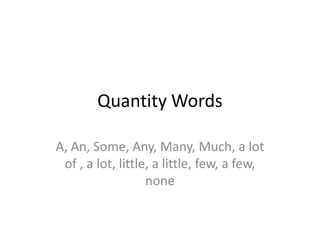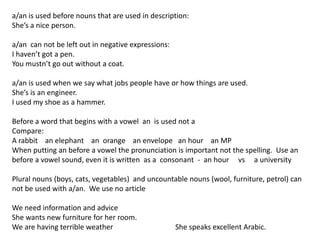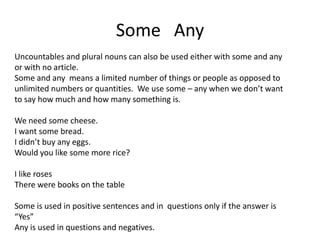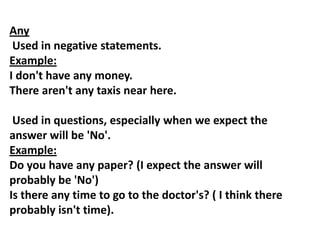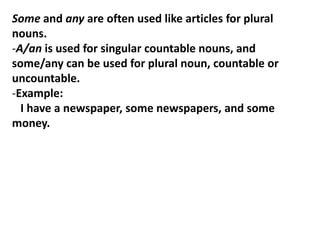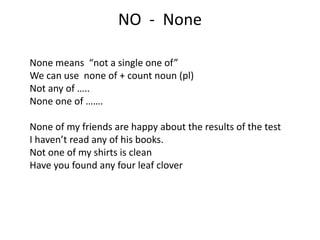This document discusses quantity words in English including countable and uncountable nouns. It explains how a/an is used with singular countable nouns to mean "one". Some key points covered include:
- Some is used for positive statements and questions expecting a "yes" answer, while any is used for questions expecting a "no" answer and negative statements.
- Many is used with plural countable nouns and much is used with singular uncountable nouns.
- A lot of and lots of mean the same thing and are informal ways to say "much" or "many".
- Few, little, and none emphasize small quantities, with few used for countable nou
